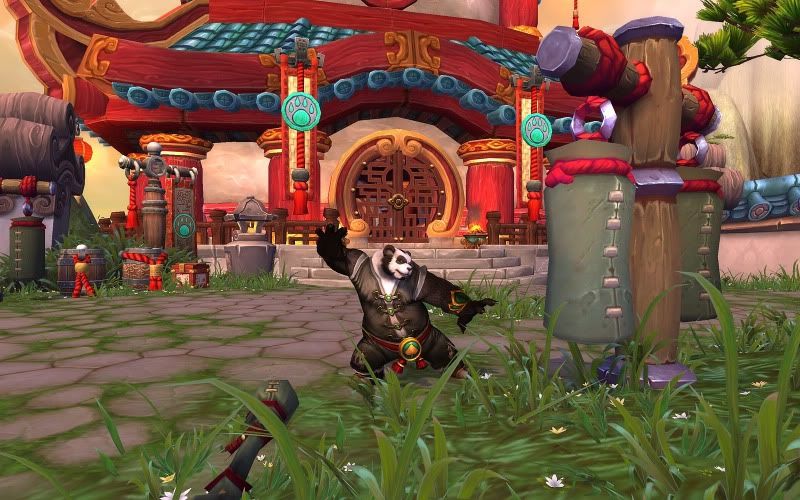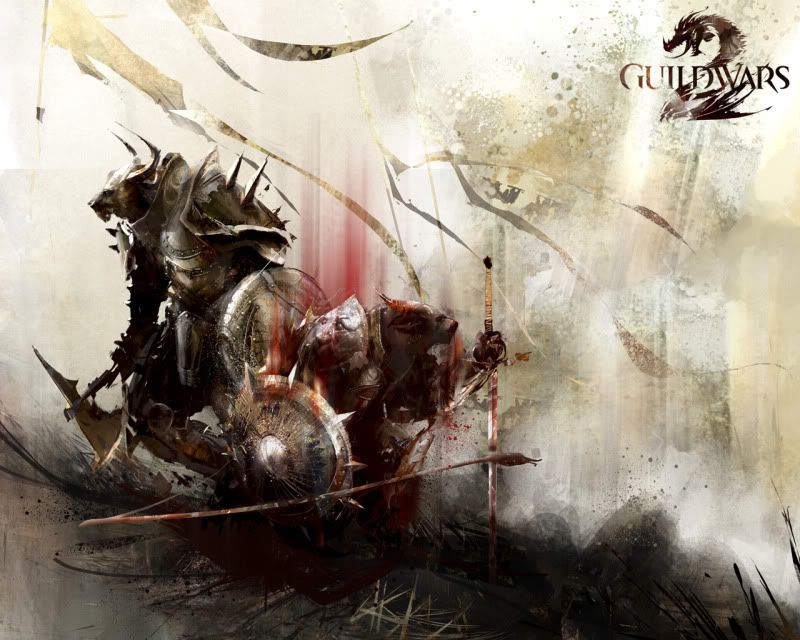
BlizzCon has come and gone again. And again, I didn’t get to go. Sadface. But next year! Next year will be THE YEAR OF CONVENTIONS! I’m totally going to cons next year. It is a moral imperative.
Anyway, while I wasn’t present and couldn’t shell out for the live stream, I did keep an eye on my Twitter feed and a couple other news sources to piece together what the rather mad and admittedly skilled yacht-owning developers at Blizzard have in store for their fans. Let’s go IP by IP.
World of Warcraft: Mists of Pandaria
“Isn’t it a little late for April Fool’s?” – Danielle
So, yeah. Pandaran.
Don’t get me wrong. I love the pandaran brewmasters. But to me they’ve always been on the fringe of Azerothian stories, kind of like the bounty hunters in Star Wars. Remember how LucasArts released a game all about one of those bounty hunters because they wanted to make him a “breakout hit” from Attack of the Lame Screenplay? The overall reaction was “meh.” That’s an appropriate reaction here, as well.
Now, taking the game in a PvP direction and away from the PvE content that has not really been up to snuff since Burning Crusade is probably a good thing, as Old Republic‘s voice-acted labyrinthine quest chains are probably going to blow WoW out of the water. And the environments and new character models look great. I just can’t shake this feeling that, like in previous expansions, the other character models will remain as dated as they have been for years. There’s also the fact that adding the Monk as a basic class, while good on paper, means that all of its abilities need to be scaled and balanced against the others. I don’t know if doing Monk as a Hero Class would have been more or less work. But the game already had balance issues, mostly pointed out by the PvPers, and with Mists being aimed for PvPers, you’d think some thought would have gone into making sure things are well balanced. The talent system is reportedly “overhauled and improved,” but I for one won’t be holding my breath. Between Skyrim and Guild Wars 2, I’ll get all the fantasy RPGing I can handle, and then some.
Diablo III
“…like giving crack to a heroin fiend…” – Ross Miller
I’m also somewhat lukewarm about Diablo 3. I enjoyed both Diablo 2 and its expansion, and I’m sure that the sequel will be enjoyable as well in the same “click your way into the dungeon, click your enemies to death, click your way back” fashion as its predecessor and Torchlight. My objections to the lack of character customization leading to the Witch Doctor being a walking stereotype aside, I’m sure the game’s engine is solid, the skills of the various classes fun to use and the story as dark as the previous iterations.
In this case, it’s more a matter of prioritization than anything. I want to play Skyrim and get into Guild Wars 2 far more than I want to play Diablo 3. I must admit, though, that pitching the WoW yearly pass to players by throwing them a gratis copy of this game is a stroke of genius. Well done, Blizzard, enjoy the new yachts!
Blizzard DOTA
“lolwut” – Me.
I love the tongue-in-cheek nature in which this was presented at BlizzCon. I’ve played a bit of League of Legends and I like the gameplay that feels like the handsome bastard rogue child of RTS and RPG. Doing so with known characters has a frankly shameful amount of appeal. I just love the notion of mincing in as Jim Raynor and blasting the snot out of Arthas over and over again. Or Illidan. Let me show you just how prepared I am, bitch.
Anyway, it could be fun. I’ll be keeping my eye on this one.
Speaking of Jimmy…
StarCraft II: Heart of the Swarm
“ZOMG PROTOSS GOT SHAFTED, NERF TERRAN” – Every Protoss player ever.
Campaign looks interesting, wish Kerrigan’s skin was still as dark as it had been in the original game, blah blah blah.
I’ll talk more about the units and other initial changes in tomorrow’s post, but what struck me as the torrential amount of backlash from a lot of the StarCraft community. I guess I shouldn’t have been surprised, as many players have made it a point to constantly decry how one particular race is dominating the others or the ways individual units can or should be tweaked to defang a prevalent strategy. Personally I don’t put a lot of stock in public outcries in this matter, partially because I have no basis by which to gauge the power of units relative to skill as I don’t have much skill myself, and partially because I think that most of the forums on which I see this sort of caustic feedback are too loosely moderated to sort out the ruffians and bandwagon-jumpers from the people who have honest, well-reasoned opinions on the state of the game. I should really listen to the podcast of the same name more.
Thoughts on new multiplayer units and the changes I’m aware of tomorrow. Stay tuned.




